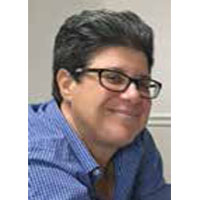 By Michele Karlsberg–
By Michele Karlsberg–
Michele Karlsberg: Two new books by authors Jacob Anderson-Minshall and Rachel Gold are featured in this issue of the San Francisco Bay Times. I asked both Anderson-Minshall and Gold how they would define the genre of Transgender Literature.
Jacob Anderson-Minshall: I define trans literature as written cultural production by, about, for, or resonating with gender nonconforming or non-cisgender people. Trans lit can subvert our definitions of gender and transgress the boundaries between men and women; these topics inform my new novel, Swimming Upstream. But trans lit can also explode ideas of what constitutes literature, memoir, or poetry itself. Such boundary-breakers include memoirist Luna Merbruja, poet Billy-Ray Belcourt and novelist Kai Cheng Thom.
I don’t believe trans lit must be produced by a self-identified trans creator. After all, as someone who didn’t come out trans until middle-age, I’m well aware that gender identities can be time sensitive. Today’s non-trans creator can undergo a gender transmutation tomorrow. And, as someone who writes characters outside my own experience (like Brooke, the Iraq war veteran in Swimming Upstream), I am loathe to suggest that other authors cannot transcend their own perspectives.

Jacob Anderson-Minshall
Trans lit may have trans characters, or it may find other ways to trouble white, heteronormative, cisgender ideas about gender, sex and sexuality. And gender certainly needn’t be the focus of these stories. Swimming Upstream is more about queer kinship and the impact of surviving trauma than about gender. Trans lit is often intersectional: early pioneer Eli Claire’s work knotted together queerness, disability, class and the trans experience. Later authors like Ryka Aoki have shown us that our sense of gender is often racially or culturally specific. Akwaeke Emezi’s Freshwater suggests an African, spiritual origin for the protagonist’s nonbinary gender expression.
In Swimming Upstream, perspectives on gender differ between characters who are trans versus intersex, Native American versus nonindigenous, and rural versus urban.
Jacob Anderson-Minshall is the trans author of the award-winning memoir “Queerly Beloved: A Love Story Across Genders.” He lived in the Bay Area for nearly two decades and much of his new novel, “Swimming Upstream,” is set here. https://www.swimmingupstream.life
Rachel Gold: I think of Trans Lit as stories, poems, plays, comics, etc. that center and support trans audiences. That doesn’t mean these works can’t also be accessible and important for cisgender audiences, but the trans audience comes first. It’s also a body of writing that’s very new, so it’s growing and changing rapidly. My definition of trans lit is what I write from, but it’s not comprehensive or final.

Rachel Gold
Trans kids and adults need to see themselves represented—not only because of high rates of suicide and depression, but also because healthy, thriving trans kids and adults have a lot to offer our culture as a whole. In areas like sexual orientation and gender identity, it can be extremely hard to know how to be yourself and have a great life if you don’t ever see anyone like you doing that.
When I came out at 16 as a lesbian, I needed stories about lesbians. I needed to know they existed (even if I hadn’t met any) and that it was possible for me to date girls. I did not come out as genderqueer at 16 because I had no language for that and no contemporary examples. In addition to our personal wellbeing, it’s important for everyone in Western culture to see a variety of ways to approach, and escape from or evolve, current gender systems. Mainstream Western gender hurts a lot of people, including cisgender ones.
In terms of recommendations, I mostly read young adult (YA) and science fiction/fantasy (SFF), so for starters: April Daniels, whose novels are both YA and SFF. For younger teens and pre-teen readers, there’s Alex Gino’s George. I’ve long admired Rachel Pollack. She wrote the first trans character in a comic book by a trans author. She won the World Fantasy Award. She’s a tremendous storyteller and mystic. Lastly, since I’m in Minneapolis, I want to recommend Andrea Jenkins, whose poetry and politics have been great for this city.
Rachel Gold is the author of multiple queer & trans young adult novels, including the award-winning “Being Emily,” the first young adult novel to tell the story of a trans girl from her perspective. Gold is a nonbinary lesbian, all around geek and avid gamer. www.rachelgold.com
Michele Karlsberg Marketing and Management specializes in publicity for the LGBTQI community. This year, Karlsberg celebrates thirty years of successful book campaigns.
Recent Comments